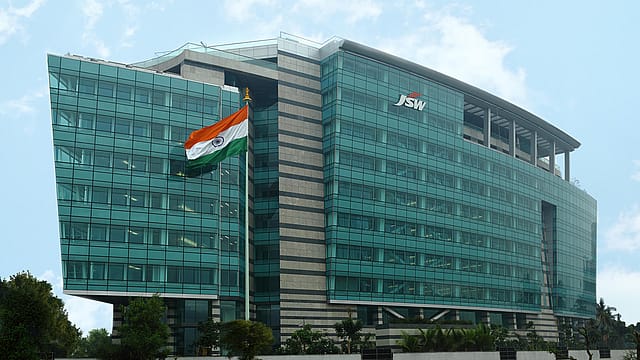"Negotiations are on": JSW on picking up stake in MG Motor, BYD
ADVERTISEMENT

The $22 billion JSW Group, helmed by chairman Sajjan Jindal, is vying for a foray into the automobile sector. While the contours of the plans have been largely kept under wraps, the conglomerate is now believed to be in advanced talks with the Indian subsidiaries of Chinese automakers MG Motor and BYD.
"The negotiations are ongoing with multiple car makers. But nothing has been finalised. It will be JSW Group promoters doing the deal with one of the overseas giants for their foray into EV business," a source tells Fortune India. MG Motor India has declined to comment on the developments. "As per company policy, at MG Motor, we do not comment on speculation," the company spokesperson says.
Chinese companies are finding it hard to secure capital via the foreign direct investment route as the Indian government has increased scrutiny of Chinese investment inflows, in the wake of border skirmishes and diplomatic tensions between the two countries. MG Motor India has been looking to raise funds via a stake sale for a while now, and is believed to be in talks with multiple investors. Chinese carmaker Great Wall Motor failed to secure approval to acquire General Motors' Talegaon plant, and ended up abandoning the ₹7,895 crore project it envisaged for India.
MG Motor India is among the top 10 carmakers in India, and has clocked in sales of 41,094 passenger vehicles in FY23, according to the Federation of Automobile Dealers Association (FADA). BYD, on the other hand, exclusively sells electric vehicles in India—for both private and commercial use—clocked in sales of 1,066 passenger vehicles. The subsidiary was established in 2007, and has two factories, covering more than 140,000 sqm, with a cumulative investment of over $200 million. The business covers mobile components, battery energy storage, electric buses, electric trucks, and electric forklifts. It also aims to expand to 53 outlets by the end of 2023.
MG Motor India has already put in a new production line for its latest offering, the MG Comet—a mini electric vehicle for urban commute, which is slated to go on sale later this month—in its manufacturing facility in Halol. "The sheet metal parts are locally stamped in India; the battery is locally sourced from India. The entire car is localised in excess of 50%. We are buying the battery from Tata Components," says Gaurav Gupta, chief commercial officer, MG Motor India.
The new financial year is also critical for MG Motor India, as it targets to double its sales growth. "We are working on our supply chain. Last year we did around 48,000 retail sales. This year, we are targeting somewhere between 80,000 and 1,00,000 units. Between the Comet and the ZS EV, we expect EVs to make 25% of our overall sales. Currently, we make 650 units of ZS EV every month, and in due course of time, we are planning to increase it to 1,000 units. A 3,000-car market will be a good place to start with," explains Gupta.
Sajjan Jindal mulled a foray into EVs multiple times. "Last time, we spent a lot of money. But we didn't pursue it. Technology has changed since then and the government has come up with incentives. We are re-looking at the project," Seshagiri Rao, the former joint managing director and group CFO, JSW Steel, earlier told Fortune India. The company will have to spend ₹25,000 crore to produce at least one lakh cars a year, according to analysts, and JSW will not shy away from making big strides. "Whatever businesses we do would be capital intensive. That is our core strength," says Jindal. "The group will add a minimum of two-three businesses by 2030. As a large business house, it is necessary for us to explore these opportunities," he adds.